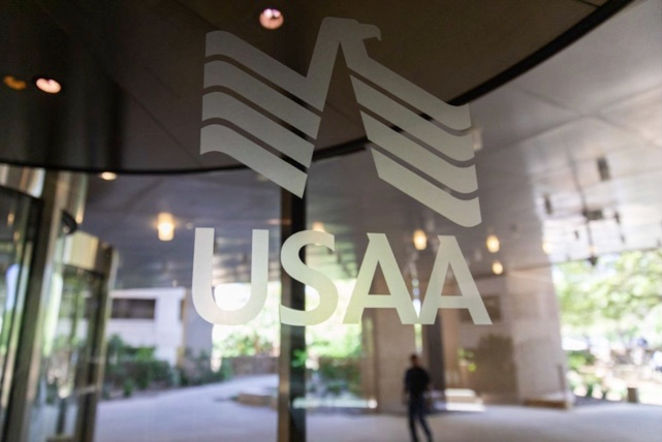Federal regulators have fined USAA Federal Savings Bank, a century-old institution that mainly does business with members and veterans of the U.S. military, for failing to follow anti-money laundering laws.
The Office of the Comptroller of the Currency and the U.S. Treasury’s Financial Crimes Enforcement Network, known as FinCEN, announced the action in separate statements on Thursday.
The comptroller of the currency fined USAA $60 million and ordered it to immediately take steps to improve its monitoring of customers for suspicious activities. FinCEN imposed an $80 million fine, saying the bank had an ineffective anti-money-laundering program for at least five years, from 2016 to 2021, and failed to heed regulators’ warnings about the problem.
Banks have a central role in the ability of federal authorities to track and punish criminal financial activity. They are required to keep strict watch over their customers’ transactions and to report things that seem suspicious, like withdrawals of large amounts of cash or attempts to transfer funds to known criminals. USAA failed to report thousands of suspicious transactions in an accurate and timely manner, including transactions in personal accounts used for apparent criminal activity, FinCEN said.
“As its customer base and revenue grew in recent years, USAA F.S.B. willfully failed to ensure that its compliance program kept pace, resulting in millions of dollars in suspicious transactions flowing through the U.S. financial system without appropriate reporting,” FinCEN’s acting director, Himamauli Das, said in a statement. The bank “received ample notice and opportunity” to fix its anti-money-laundering controls, he added, “but repeatedly failed to do so.”
USAA said on Thursday that it had not sufficiently strengthened its anti-money-laundering abilities and expertise to meet federal requirements but was cooperating with the Office of the Comptroller of the Currency.
“While the issues identified in these orders did not result in any individual member harm, we understand the importance of these requirements,” the bank’s chief executive, Wayne Peacock, said. “USAA has already made progress in many critical areas by investing in new systems and training, enhancing staffing and expertise, and improving our processes. And we have an unwavering commitment to the military community.”


